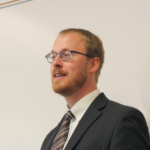In the writings of the New Testament and of the Fathers, the person of Christ was considered to be the fulfillment of the law and the prophecies given by God in the Old Testament. Christ’s unexpectedly over-abundant fulfillment of the Old Testament’s expectation of salvation is only seen with the eyes of faith and brought forth a typological and symbolical reading of Scripture over against reductionist (e.g., Marcion) and gnostic interpretations of the mystery of Christ. The Church Fathers’ approach to Scripture aspired to do justice to the historical and bodily dimension of salvation and the deeply mysterious way in which God’s revelation takes place within history and the created cosmos. We can even detect a kind of “sacramental ontology” in the Fathers, as the mystery of the incarnation informs and integrates their whole thinking about man, language, social relations, etc. In the twentieth century, Daniélou, de Lubac and von Balthasar, among others, made it their goal to recover and develop this sacramental thought of the Fathers and discover its fruitfulness for the Church over against a merely functional and compartmentalized interpretation of the sacraments. Importantly, for the Fathers, revelation did not simply mean an intellectual transmission of information, but most of all God’s mysterious and sacramental self-gift to human beings in the flesh, which transforms the relation to God and the world as such and can be experienced and participated in the Church’s liturgy. This course aims at enabling students to understand the relevance of the Fathers’ thought on the sacraments—especially baptism, the Eucharist and matrimony—and how it informs and is informed by the larger framework of their approach to Scripture as the Word of God and the Church. Readings of the Fathers will include Irenaeus of Lyon, Origen, Augustine, Cyril of Jerusalem, Dionysius the Areopagite and others.
Selected Texts
Holy Scripture.
Ambrose, “The Mysteries” in Theological and Dogmatic Works.
(Pseudo-)Cyril of Jerusalem, Lectures on the Christian Sacraments: The Procatechesis and the Five Mystagogical Catecheses Ascribed to St Cyril of Jerusalem.
David Hunter, Marriage in the Early Church.
Brant Pitre, Jesus and the Jewish Roots of the Eucharist: Unlocking the Secrets of the Last Supper.
Brant Pitre, Jesus the Bridegroom: The Greatest Love Story Ever Told.
Joseph Ratzinger, Collected Works, Vol. XI: Theology of the Liturgy.
Faculty

Jonathan Bieler
Assistant Professor of Patrology and Systematic Theology
Dr. Bieler received his doctoral degree in theology at the University of Zürich (2017), with a dissertation in Patristics on the coherence of Maximus the Confessor’s thought, which is published by Brill (2019). He taught in the theological faculty at the University of Zürich and assisted the chair of Patristics with teaching and research. In his work, he strives to combine the usage of historical-critical methods with faithfulness to the Church’s living tradition.
Learn More